- Home
- Bryce Courtenay
April Fool's Day
April Fool's Day Read online
PENGUIN BOOKS
APRIL FOOL’S DAY
Bryce Courtenay is the bestselling author of The Power of One, Tandia, April Fool’s Day, The Potato Factory, Tommo & Hawk, Jessica, Solomon’s Song, A Recipe for Dreaming, The Family Frying Pan, The Night Country, Smoky Joe’s Cafe, Four Fires, Matthew Flinders’ Cat, Brother Fish, Whitethorn, Sylvia and The Persimmon Tree.
The Power of One is also available in an edition for younger readers, and Jessica has been made into an award-winning television miniseries.
Bryce Courtenay lives in the Hunter Valley, New South Wales.
Further information about the
author can be found at
www.brycecourtenay.com
BOOKS BY BRYCE COURTENAY
The Power of One
Tandia
April Fool’s Day
A Recipe for Dreaming
The Family Frying Pan
The Night Country
Jessica
Smoky Joe’s Cafe
Four Fires
Matthew Flinders’ Cat
Brother Fish
Whitethorn
Sylvia
The Persimmon Tree
THE AUSTRALIAN TRILOGY
The Potato Factory
Tommo & Hawk
Solomon’s Song
Also available in one volume,
as The Australian Trilogy
Bryce Courtenay
APRIL FOOL’S DAY
PENGUIN BOOKS
PENGUIN BOOKS
Published by the Penguin Group
Penguin Group (Australia)
250 Camberwell Road, Camberwell Victoria 3124, Australia
(a division of Pearson Australia Group Pty Ltd)
Penguin Group (USA) Inc.
375 Hudson Street, New York, New York 10014, USA
Penguin Group (Canada)
90 Eglinton Avenue East, Suite 700, Toronto, Ontario, Canada M4P 2Y3
(a division of Pearson Penguin Canada Inc.)
Penguin Books Ltd
80 Strand, London WC2R 0RL, England
Penguin Ireland
25 St Stephen’s Green, Dublin 2, Ireland
(a division of Penguin Books Ltd)
Penguin Books India Pvt Ltd
11 Community Centre, Panchsheel Park New Delhi – 110 017, India
Penguin Group (NZ)
67 Apollo Drive, Rosedale, North Shore 0632, New Zealand
(a division of Pearson New Zealand Ltd)
Penguin Books (South Africa) (Pty) Ltd
24 Sturdee Avenue, Rosebank, Johannesburg 2196, South Africa
Penguin Books Ltd, Registered Offices: 80 Strand, London WC2R 0RL, England
First published by William Heinemann Australia, 1993
First published by Penguin Books Australia, 1997, revised edition published 1998
This edition published by Penguin Group (Australia), 2006
Copyright © Bryce Courtenay 1993, 1998
The moral right of the author has been asserted
All rights reserved. Without limiting the rights under copyright reserved above, no part of this publication may be reproduced, stored in or introduced into a retrieval system, or transmitted, in any form or by any means (electronic, mechanical, photocopying, recording or otherwise), without the prior written permission of both the copyright owner and the above publisher of this book.
ISBN: 978-1-74-228058-5
penguin.com.au
This is Damon’s book and it is for Benita and Celeste, whom he loved with all his heart.
To his love and gratitude I add my own.
ACKNOWLEDGEMENTS
As always with a book of this kind there are a great many people to thank who don’t get a mention between the pages. Damon, my son, was fortunate in that he had so many people throughout his life who cared about and loved him and who often played a quiet but wonderfully supportive role in making his life easier. To all those who loved and cared for him but who are not mentioned by name—thank you.
Then there are people who helped to shape Damon’s life, some of whom are mentioned in this book, but others, as important, who are not. Tony and John Wallace for their love and help all his life and especially at the end; Shirley Ham who made his limbs work again when they’d stopped; Michael and Roberta Wilson; the voluntary CSN workers; the Bobby Goldsmith Foundation; the nurses from the Waverley Community Health Centre; the doctors, nurses and staff of the Marks Pavilion, Prince Henry Hospital; Roger Tonkin; Bernie Carlisle and Wendy; Patricia Cook; Nola and the late Mark Bishop; Sally and Peter Kalina; the late Pixie and Bruce Harris; Lana and Lucy.
Many other people gave generously of their time, knowledge or facilities to help me with the task of writing: Alan Barry; Lorraine Cibilic; Owen Denmeade; Steven Fearnley; Ethna Gallacher; Alex Hamill; Barbara Volk; Dr John Vivian Wells; Carol Shorter for her help to Celeste; George Patterson, my agency, who were always generous in allowing me time and facilities when I needed them.
Four more names remain: Jill Hickson, my literary agent in Australia; Mic Cheetham, my agent in London; Laura Longrigg in London, who did the early editing; and Louise Adler, Publishing Director of William Heinemann Australia, who brought considerable skill, patience and tenacity to bear as the major editor responsible for thinning and shaping a book which sometimes threatened to overwhelm me and in which I was often too closely involved to see its substance with clarity and calm. I thank you all for your generosity of mind and spirit.
All at once the warmth fell away
and the life passed into the moving air.
Virgil, Aeneid IV
WHITETHORN
From Bryce Courtenay comes Whitethorn a new novel of Africa. The time is 1939: White South Africa is a deeply divided nation with many of the Afrikaner people fanatically opposed to the English.
The world is on the brink of war with South Africa electing to fight for the Allied cause against Germany. Six year old Tom Fitzsaxby finds himself in The Boys Farm, an orphanage in a small remote town in the high mountains, where the Afrikaners side fanatically with Hitler’s Germany.
Tom’s English name alone proves sufficient for him to be racially ostracised. And so begins some of life’s tougher lessons for the small, lonely boy.
Like the whitethorn, one of Africa’s most enduring plants, Tom learns how to survive in the harsh climate of racial hatred. Then a terrible event sets him on a journey to ensure that justice is done. On the way, his most unexpected discovery is love.
PUBLISHED NOVEMBER 2005
BOOK ONE
Damon Courtenay is Not to be Touched, Not Ever.
One
Death on a Saffron Morning.
Damon died in the third week after Pinatubo, a small, unknown volcano in the Philippines, started to belch smoke and spew ash, pushing smoke higher and higher into the stratosphere where the great up-draughts and crosswinds that swirl above the earth swept it to a height of twenty-two thousand feet and spread it like a blanket across the blue Pacific Ocean.
An hour before dawn each day the sunset on the light side of the earth reflected its glow against this great smokescreen and bounced it into the dark sleeping side to create a false dawn. The first of these false dawns occurred in Sydney on April the first 1991, the morning Damon died. An April Fool’s dawn on April Fool’s Day.
We all thought Damon would die sometime over the Easter long weekend, though God knows, he’d beaten the odds often enough before. The mighty Damon, just when you thought he was a goner, he would make it round the final corner on wobbly legs and totter down the home straight to be back with us again. But each time it was harder and each time he was weaker, a little bit of his old self left behind.
His brothers Brett and Adam were there with
Celeste and Ann. Also Benita, his mother, with her anger at a son passing before his father, her love and the private, unreasonable guilt she’d carried for twenty-four years. We were Damon’s family, Benita, Bryce, Brett, Adam, Celeste and Ann.
Celeste had been Damon’s lover and had lived with him for the past six years. She had been his constant and devoted nurse. She dressed his bedsores, swabbed the thick yellow crusted thrush from his lips and the inside of his mouth and pus from his conjunctive eyes. She washed him and cleaned up when he was incontinent and dressed his shingles. She had administered his morphine and the complex two-hourly cocktail of pills that kept his frail heart pumping and his mind more or less focused.
It was Celeste, more than any of us, who had watched his body slowly deteriorate, his ribs growing sharply more pronounced under his taut translucent skin and his limbs becoming so thin and dry that it seemed as though they might snap when he was lifted into bed.
Damon, whose body had never been his strong point, now looked like a walking corpse, a Jew in one of those flickering black and white newsreel pictures taken by the Allies when they liberated the concentration camps.
Funny how those pictures were somehow meant to be in black and white, because the first thing you notice about approaching death is its lack of colour. Colour is an obscene pigment in the dying process.
Before death came to Damon, he appeared to fade, to be losing his colour. Damon’s eyes were now smudged large, and set deep in his skull. There seemed to be no clear, clean hazel left to nourish them with life, they’d changed to a mottled brown, the colour of grape vinegar. Often, as he drank liquid morphine straight from the bottle, they would glaze over and lose focus, as though he’d pulled a shroud over them so he could hide his shame.
Then on April Fool’s Day, a day which began with surprising, unexpected colour, Damon was ready. There was no colour left in him at all, he’d wrung the last drop out, used the last tiny bit to whisper that he loved us.
It was a great effort for him to talk and each of us took our turn in moving up close, “I love you very much, Dad.” There was nothing more to say. It was everything contained in one thing, his whole life.
Brett, his oldest brother, silent and big as a barn door, was back from Kuala Lumpur with Ann. Adam, soft, big-hearted Adam who loved his little brother with a fierce, sad, bewildered face, had flown from London.
Both brothers waited for Damon to die, gentle and a bit clumsy in the small semi-detached cottage Damon shared with Celeste. Both were trying to be useful around the smoothly functioning Celeste who still spoke to Damon with a clear, laughing, indulgent voice as though amused that he’d turned a slight indisposition into an excuse for a day away from work.
Celeste was not prepared to let Death into Damon’s room and so she beat it back, threatened it with laughter and sheer, desperate bluff. At night she slept beside him, holding him tight, on guard against Death’s surreptitious entry, ready to wake up and defend him the moment the curtains parted and the hot, dry breath of the Prince of Darkness billowed inwards.
Once, towards the end, Damon threw a sudden massive fit, not the first, but the first for a while and we rushed him by ambulance to the nearest hospital. In Casualty he experienced a second fit which caused him to evacuate. It was decided to keep him in hospital overnight.
Damon was removed to a tiny room, situated in a sort of twilight zone between the Casualty ward and a regular one. Though nothing was said, it was the room they kept for his kind. A room where they used yellow bags. Everything went into these bright yellow plastic bags to be incinerated. Swabs, tissues, syringes, uneaten food, the contaminated detritus of his broken life.
Taped to the door was the international infection warning; a yellow circle with a black cross in the centre. Beneath it, written with a red felt-tipped marking pen, a sign saying: Gown, mask and gloves must be worn.
The room was painted pale apple green and contained a single bed and the usual lights, plugs, switches and rubber tubing set into the wall, but nothing else. It was a holding place, a really sad space to have to come to die.
Two cheerful young nurses in rubber gloves, gowns and masks appeared at the door with a stainless steel trolley and we stood with our backs to the wall to make room for them to enter. They both had firm brows and nice brown eyes and looked as though they might be attractive under the cotton squares which hid the remainder of their faces. When they smiled their stretched lips sucked up the thin mask, creasing it with a horizontal line. Pulled tight like that against their faces, they looked like pretty bank robbers in a kids’ funny movie.
They kept up their chatter as they removed Damon’s soiled pyjama bottom and placed it into a yellow bag, then they swabbed him clean. They showed no surprise when they turned him on his stomach to do the same on his flip side and saw the open bedsore the size of a large man’s fist spreading up his back from his coccyx.
The bedsore was an obscenity on his pale skin, not just for what it was, but also for its colour: the raw, angry flesh tainted with his excrement seemed somehow to be the physical place, the hole torn into his lower back where the colour was leaking out.
The two young nurses cleaned him carefully and dressed the bed wound, placing the cotton wool swabs into a yellow bag clipped to the end of the trolley. Then they worked him into a fresh pair of pyjamas, his arms floppy and awkward, his head lolling, a gangly rag doll being treated to a fresh pair of striped pyjamas in an apple green playroom for the condemned.
One of the nurses examined Damon’s drip, squinting expertly at the tiny clear saline drop poised at the top of the pipette then adjusted the pressure, forcing the reluctant droplet to let go so that another might immediately follow it to oblivion. The second nurse stood at the doorway waiting with the trolley and they left together, still chatting; their trim belted waists, starched hips and strong young legs, revealed where the over-gown was split and carelessly tied down the back, were full of fierce, fecund life.
Damon, who was heavily sedated and barely aware of his surroundings, immediately fell into an exhausted sleep. It was over for another time, we could go home and pretend, for a few hours, to pick up the tattered remnants of our normal lives. We’d learned not to lie awake in the dark and stare at the ceiling, not to think, to postpone the sadness, shunting the future without Damon into a disused siding.
We were all just hanging on, telling ourselves that Damon had beaten the grim reaper once again, our private thoughts perhaps different. Mine I knew were filled with guilty questions. How much more? How much more did he have to take? Couldn’t it have ended tonight? Was it wrong, wicked, to think like this? Such a little-boy word, wicked. Was I thinking of me and not of him? Was life precious, even now when there was nothing left except pain and memories? With the old good memories corrupted and the images defiled? This time it was a couple of severe fits which threatened to stop his dicky heart. If his heart had gone tonight, would I have allowed them to use the cardio-resusci-tation equipment or would I have screamed at them to leave him alone to die, to let him become a sudden blinding nothing?
The fits were just the latest in a litany of remorseless assaults to his battered body and he’d made it through to the other end still with us, still able to come out of his corner for another round.
The mighty Damon, it hurt such a lot just to think about him. I wanted to be proud of his courage and at the same time to cry out at the shame that someone so beautiful could fight so hard, to die so badly.
A nursing sister entered the room carrying a clipboard. She moved directly to me, the only male in the room. “Overnight admission.” She handed me the clipboard. “You need to sign it before you leave.” She glanced at the fob watch pinned to her uniform.
I took the clipboard and handed it to Celeste, who was half-seated with one hip resting on Damon’s bed. The nursing sister’s eyes followed. She was short and wide, powdered too white and with her cheekbones over-blushed. She had large breasts and wore heavy duty support stocking
s and flat, white, crepe-soled shoes.
Her instinctive demeanour and appearance brought back memories of a past hospital system. It was as though she was serving out her time and had reluctantly given up her starched nursing sister’s veil and the unspoken authority it had carried.
She indicated Damon by slightly lifting her chin, “Is he a relation?” Her question was directed at Celeste.
“I’m his defacto,” Celeste replied. The word suddenly sounded coarse and illegitimate as though it was a part of what was wrong with Damon.
The woman was momentarily caught by surprise, Damon’s kind were not supposed to have female partners. “That won’t do,” she said and looked at me. “You’re his father?” I nodded and she turned back to Celeste and gave her a quick, paper-thin smile, as though an electric impulse had caused her lips to twitch involuntarily. Then she reached for the clipboard and handed it back to me, tapping the spot with a biro where she wanted me to place my signature.
I took the pen and scribbled my name. Benita and Celeste looked at me and I indicated with my eyes that we should leave; there was nothing further we could do now that Damon was asleep. We turned to go, but Celeste shook her head. “I have to sleep here.” Her pretty face was pale and drained and her blue eyes were bloodshot from crying alone in the toilet.
“You can’t, dear. Not in this room. It’s too small and against regulations, this is an infection risk area.” The sister paused then added, though not unkindly, “You can wait in Casualty, there’s a TV and a coffee machine. We’ll call you if you’re needed.”
Celeste’s eyes welled, but her voice was steady, though slightly high pitched when she spoke, so that the words came out like a child’s, all at once, “Is he more of an infection risk here than he is at home?”
Her logic was irrefutable, but the sister wasn’t having any, “We, we can’t take all the necessary precautions.”

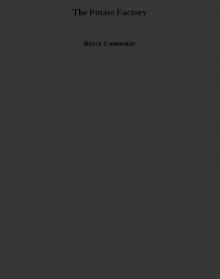 The Potato Factory
The Potato Factory The Power of One
The Power of One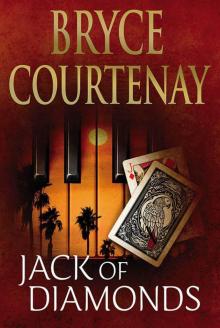 Jack of Diamonds
Jack of Diamonds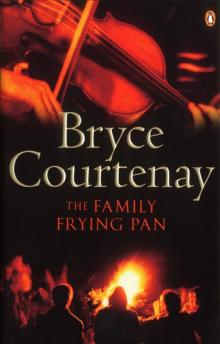 The Family Frying Pan
The Family Frying Pan April Fool's Day
April Fool's Day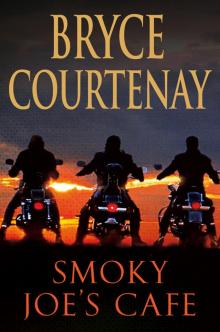 Smoky Joe's Cafe
Smoky Joe's Cafe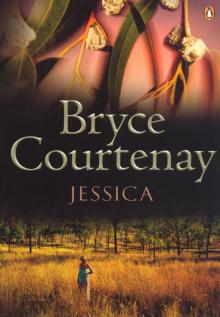 Jessica
Jessica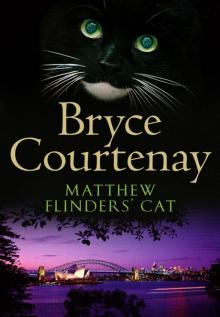 Matthew Flinders' Cat
Matthew Flinders' Cat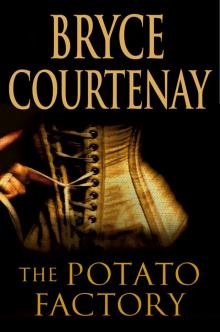 Potato Factory
Potato Factory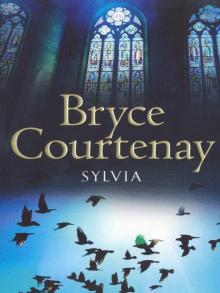 Sylvia
Sylvia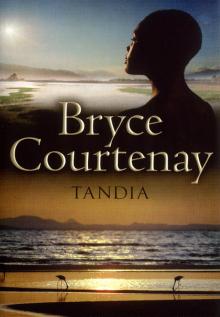 Tandia
Tandia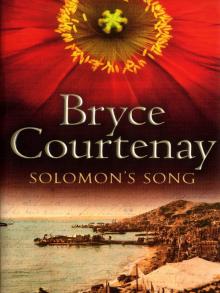 Solomon's Song
Solomon's Song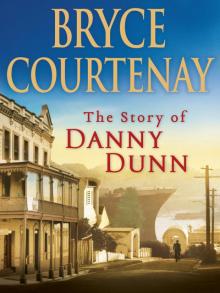 The Story of Danny Dunn
The Story of Danny Dunn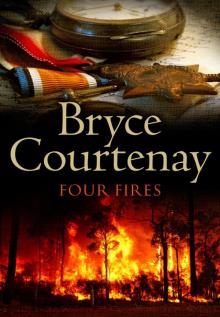 Four Fires
Four Fires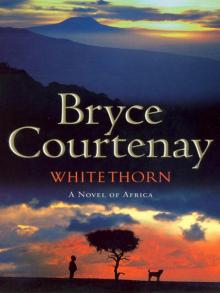 Whitethorn
Whitethorn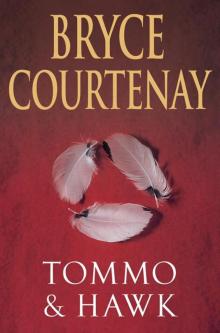 Tommo and Hawk
Tommo and Hawk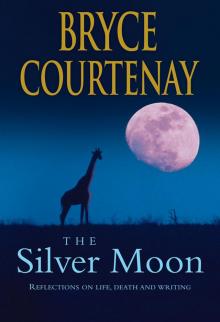 The Silver Moon
The Silver Moon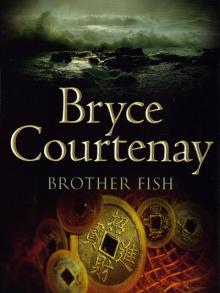 Brother Fish
Brother Fish FORTUNE COOKIE
FORTUNE COOKIE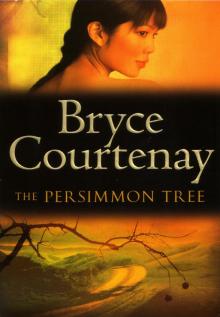 The Persimmon Tree
The Persimmon Tree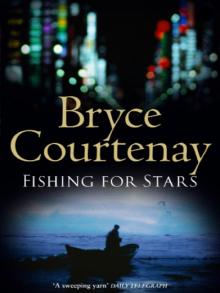 Fishing for Stars
Fishing for Stars